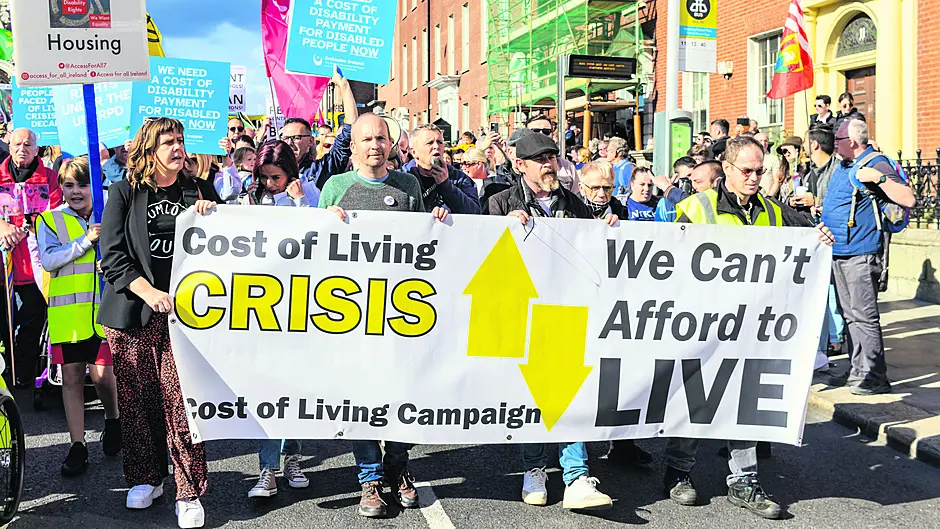ON February 21st the government announced new cost-of-living measures for families, businesses and the most vulnerable, to help for the period April to July.
Measures include a lump sum child benefit payment of €100 per child to be paid in June, and a €200 lump sum to be paid in April to all long-term social welfare recipients.
In July there will be a one-off increase of €100 in the back-to-school clothing and footwear allowance and the State examination fees for students sitting the Junior and Leaving Certs will be waived this year.
Reduced charges will apply to school transport of €50 per pupil at primary level, €75 per pupil at post primary level, with a cap per family of €125.
Temporary reductions in Vat on gas and electricity from 13.5% to 9% will be extended to October 31st 2023.
Temporary reductions in Vat on tourism and hospitality from 13.5% to 9% will be extended to August 31st 2023.
The temporary business energy support scheme will be extended to May 31st and enhanced, including by reducing the threshold for qualification from 50% increase in electricity or gas to 30% increase (to apply retrospectively from September last year) and by increasing from March the level of relief from 40% to 50% of eligible costs, subject to a monthly limit, which will also be increased from March to €15,000 per month per trade or profession, subject to an overall cap of €45,000 where the business is carried on from more than one location.
These changes are subject to approval from the European Commission.
A phased restoration of the rates of excise on petrol, diesel and marked gas oil will take place in three stages over the coming months.
There will be a new grant for businesses using LPG or kerosene.
The hot school meals programme will be extended to all DEIS primary schools from September and start of preparations for the hot school meals programme to be extended to non DEIS primary schools.
Many of the measures announced as part of Budget 2023 are only now, or will shortly, come into effect.
These include the payment of the fourth electricity credit of €200 to every household in March, the abolition of inpatient hospital chargers in April, and the introduction of free school books and reduced costs for further and higher education from September.
Fuel Allowance is a means-tested payment. This means the Department of Social Protection (DSP) examines all your sources of income, and all gross weekly income must be below a certain amount to pass the means test.
If you are under 70, you must be getting a qualifying payment to apply for fuel allowance, to qualify for fuel allowance, your total means from all sources must be less than the current maximum rate of State contributory pension including any increases that you might get for living alone and dependants, plus €200. This is called the assessable income limit.
From January 2023 the assessable income limits are as follows:
Single person is €465.30 (€200 plus €265.30).
A couple (where the qualified adult is aged under 66) is €642 (€200 plus €265.30 plus €176.70).
A couple (where the qualified adult is aged 66 or overand under 70) is €703.10 (€200 plus €265.30 plus €237.80).
If one person in a couple is over 70, the income limit is €1,000.
To qualify for the fuel allowance if you are over 70, you must have income of up to €500 per week, or €1,000 per week for a couple.
Capital (savings, property and investment) are also assessed. The first €50,000 of capital is not included in the means test.
Note that if one person in a couple is aged over 70, you will be assessed for fuel allowance using the over-70 means test criteria.
• Ann Marie Hurley is an accountant with FDC in Bandon.









